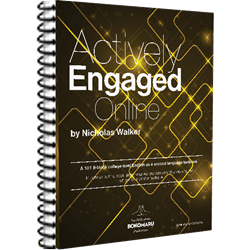- Allergy
- a damaging immune response by the body to a substance, especially pollen, fur, a particular food, or dust, to which it has become hypersensitive.
- Apnea
- temporary cessation of breathing, especially during sleep.
- Artery
- any of the muscular-walled tubes forming part of the circulation system by which blood (mainly that which has been oxygenated) is conveyed from the heart to all parts of the body.
- Asystole
- a state of no cardiac electrical activity, hence no contractions of the myocardium and no cardiac output or blood flow.
- Bradycardia
- abnormally slow heart action.
- Cervical collar
- a medical device used to support a person's neck. It is also used by emergency personnel for those who have had traumatic head or neck injuries, and can be used to treat chronic medical conditions.
- Cephalalgia
- A distinctive syndrome of headaches, also known as cluster headache or migrainous neuralgia.
- Concussion
- temporary unconsciousness caused by a blow to the head. The term is also used loosely of the aftereffects such as confusion or temporary incapacity.
- Cyanosis
- a bluish discoloration of the skin resulting from poor circulation or inadequate oxygenation of the blood.
- Defibrillator
- an apparatus used to control heart fibrillation by application of an electric current to the chest wall or heart.
- Dyspnea
- difficult or labored breathing.
- Edema
- a condition characterized by an excess of watery fluid collecting in the cavities or tissues of the body.
- Epistaxis
- bleeding from the nose.
- Faint
- lose consciousness for a short time because of a temporarily insufficient supply of oxygen to the brain.
- Flutter
- an abnormal heart rhythm that occurs in the atria of the heart.
- Glucose
- a simple sugar that is an important energy source in living organisms and is a component of many carbohydrates.
- Infarct
- a small localized area of dead tissue resulting from failure of blood supply.
- Ischemia
- an inadequate blood supply to an organ or part of the body, especially the heart muscles.
- Miosis
- excessive constriction of the pupil of the eye.
- Prone
- lying flat, especially face downward.
- Pulse
- a rhythmical throbbing of the arteries as blood is propelled through them, typically as felt in the wrists or neck.
- Stretcher
- an apparatus used for moving patients who require medical care.
Field related glossary
As you know, I study in Pre-Hospital Emergency care. From my point of view, it is the best field of study if you like helping and talking with people, where you usually feel greatful at the end of the day. Here is a little glossary about the vocabulary of my field of study.
Sources:
- fieldrelated.com
- google.ca
| Analyze your text for field-related vocabulary with FieldRelated.com |

